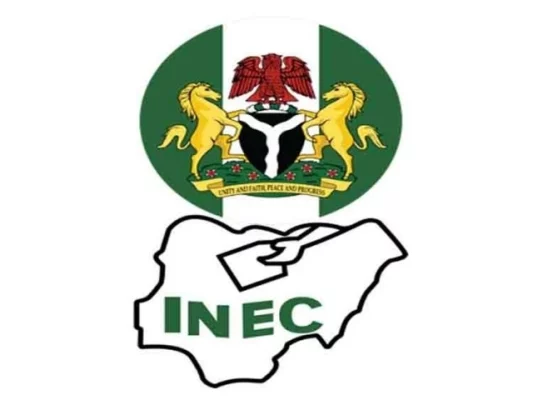**Tasks parties on internal democracy, respect for members’ will
By Harry Awurumibe, Editor, Abuja Bureau
The Independent National Electoral Commission (INEC) has bemoaned the spate of litigation that have followed the elections so far conducted in Nigeria since the inception of present democratic dispensation in 1999, saying that it is sad that elections have been litigious due to the nation’s political culture.
This is even as the Commission has tasked political parties and politicians on adherence of internal democracy and respect for members’ will to avoid the avalanche of litigation after every elections.
INEC Director of Legal Drafting and Contacts, Barrister (Mrs) Toyin Babalola stated this in a paper she delivered at a Two-day Capacity Building Workshop for INEC Press Corp on Ethical, Safety Practices and Critical Issues Relating to the Kogi, Imo and Bayelsa Governorship Elections, held in Akwanga, Nasarawa state.
Babalola argued that as a way to minimizing the volume of litigation after every elections in Nigeria, it will be important that political parties strictly preserve the tenets of internal democracy by ensuring that nomination of candidates reflects the will of their members at party primaries.
The INEC Director maintained that the political parties, by strictly preserving the tenets of internal democracy and ensured that nomination of candidates reflect the will of their members, would be helping to reduce the spate of pre-election matters and its impact on preparation for election.
According to her, “Elections conducted since the inception of democracy have been litigious, owing to our political culture.
“It is important that political parties strictly preserve the tenets of internal democracy by ensuring that nomination of candidates reflects the will of their members at party primaries, to reduce the spate of pre-election matters and its impact on preparation for elections”, she said.
The INEC Director of Legal Drafting and Contacts of the stated that it is pertinent to note that election challenges are a crucial part of the electoral processes of constitutional democracies, world over.
Said she, “In Nigeria, like other representative democracies, the electoral laws provide for resolution of electoral disputes through the mechanism of legal proceedings referred to as pre–election and post- election (Election Petitions) cases.
“The challenges associated with litigation, are not limited to pre-election cases.
“The following challenges have been identified as relating to pre-election matters: Lack of internal party democracy: This is one of the major basis for pre-election matters.
Speaking further she said: “Non-adherence to party Constitution and Guidelines, arbitral replacement of candidates from persons that emerged from validly conducted primaries, nomination of placeholders, etc are factors that impact on preparations for elections”.
Babalola also said that conflicting judgments by the Nigerian Courts which have become a re-current decimal in the jurisprudence of election in Nigeria and is inimical to the electoral process.
Said she: “The concerns of the Commission are in respect of the trend which has portrayed partial departure from the time honoured doctrine of stare decisis resulting in conflicting decisions on same set of facts and subject matter.
“This has resulted to uncertainty, loss of confidence in the system with the attendant negative consequences on the electoral process.
“The conflicting judgments on elections and political matters can be categorized into the following: circumstances where the courts failed to be bound by decisions of superior courts or their own decisions on similar facts; and circumstances where courts of co-ordinate jurisdiction give conflicting decisions/orders on similar set of facts.
“Either of these poses significant problems to the electoral process. READ ALSO:
- Wolves, Ipswich Town In Talks With Sevilla For Iheanacho
- Lagos teacher remanded for assaulting 3-year-old pupil in viral video
- Jarvis Throws Surprise Welcome Back Party For Peller As He Arrives Nigeria (Video)
- Lagos Nightclubs Raked In N4.32bn During Detty December
- Nigerian Forward Ekong Joins Swedish Club Malmo FF
“Where the courts depart from precedents, it creates uncertainty as to the state of the law and consequence of particular conduct and makes it difficult for the Commission to carry out its constitutional mandate.
Babalola lamented that where courts of coordinate jurisdiction give conflicting judgments, it can lead to disobedience of court orders, confusion in the polity and to the Election Management Body”.


